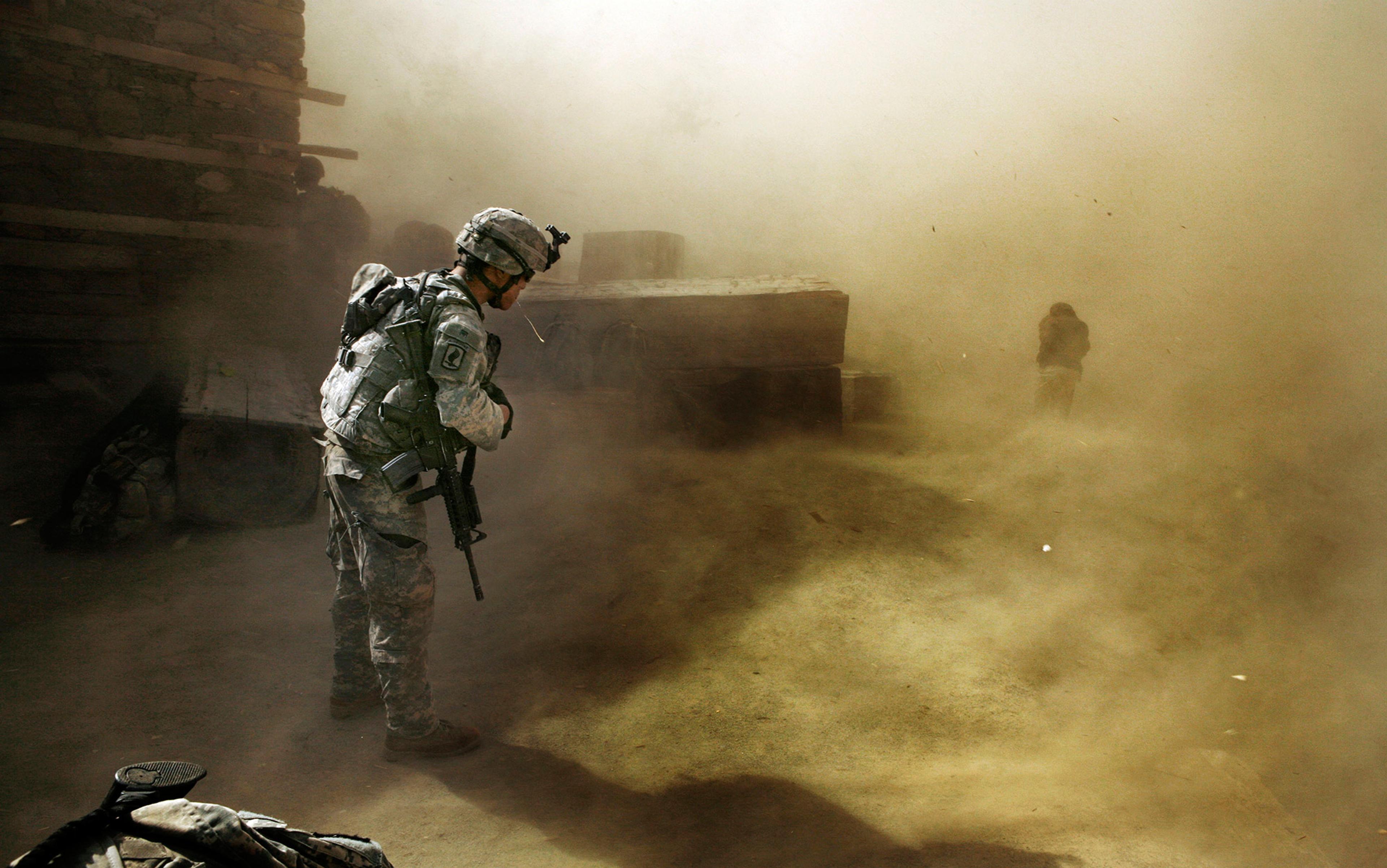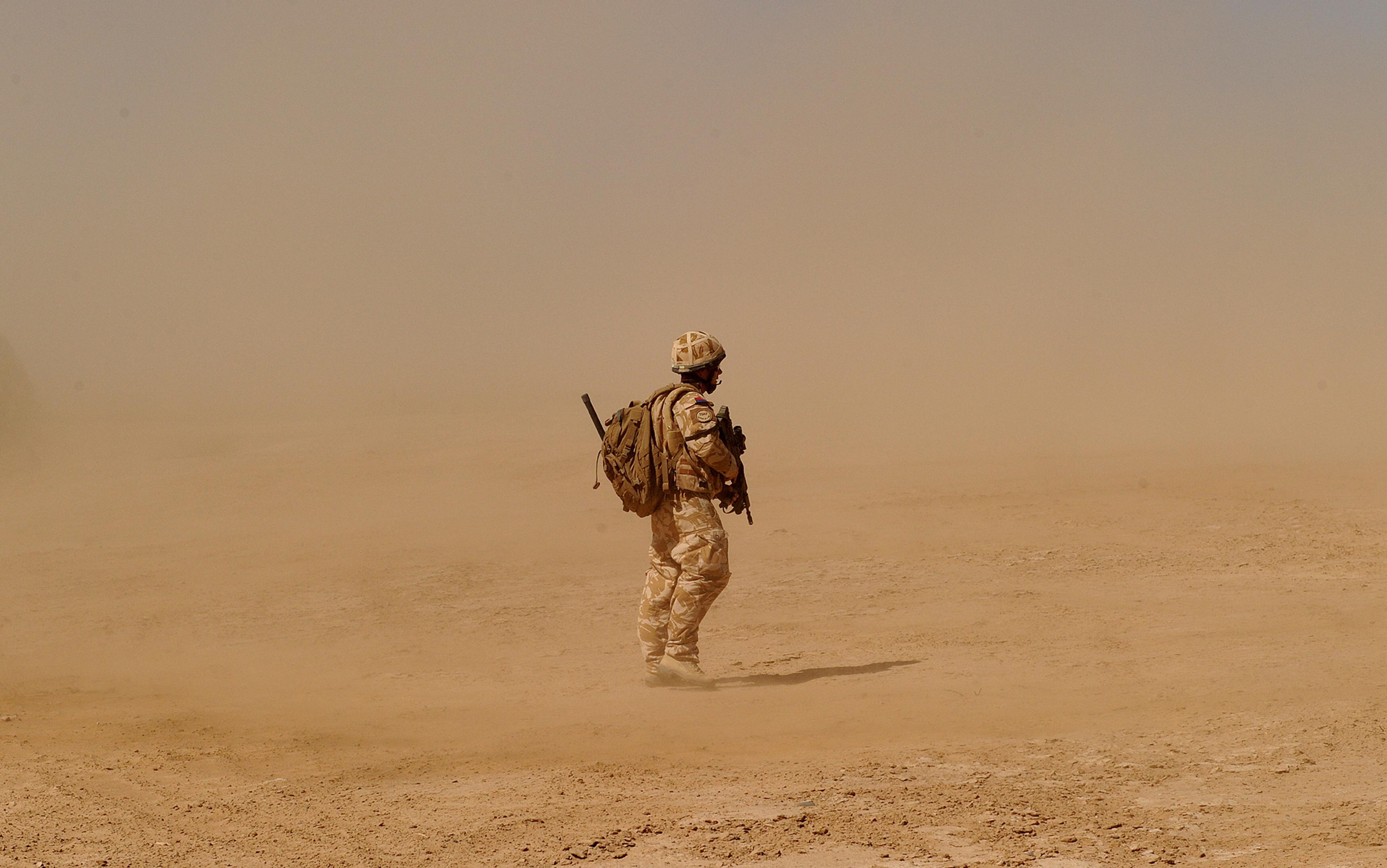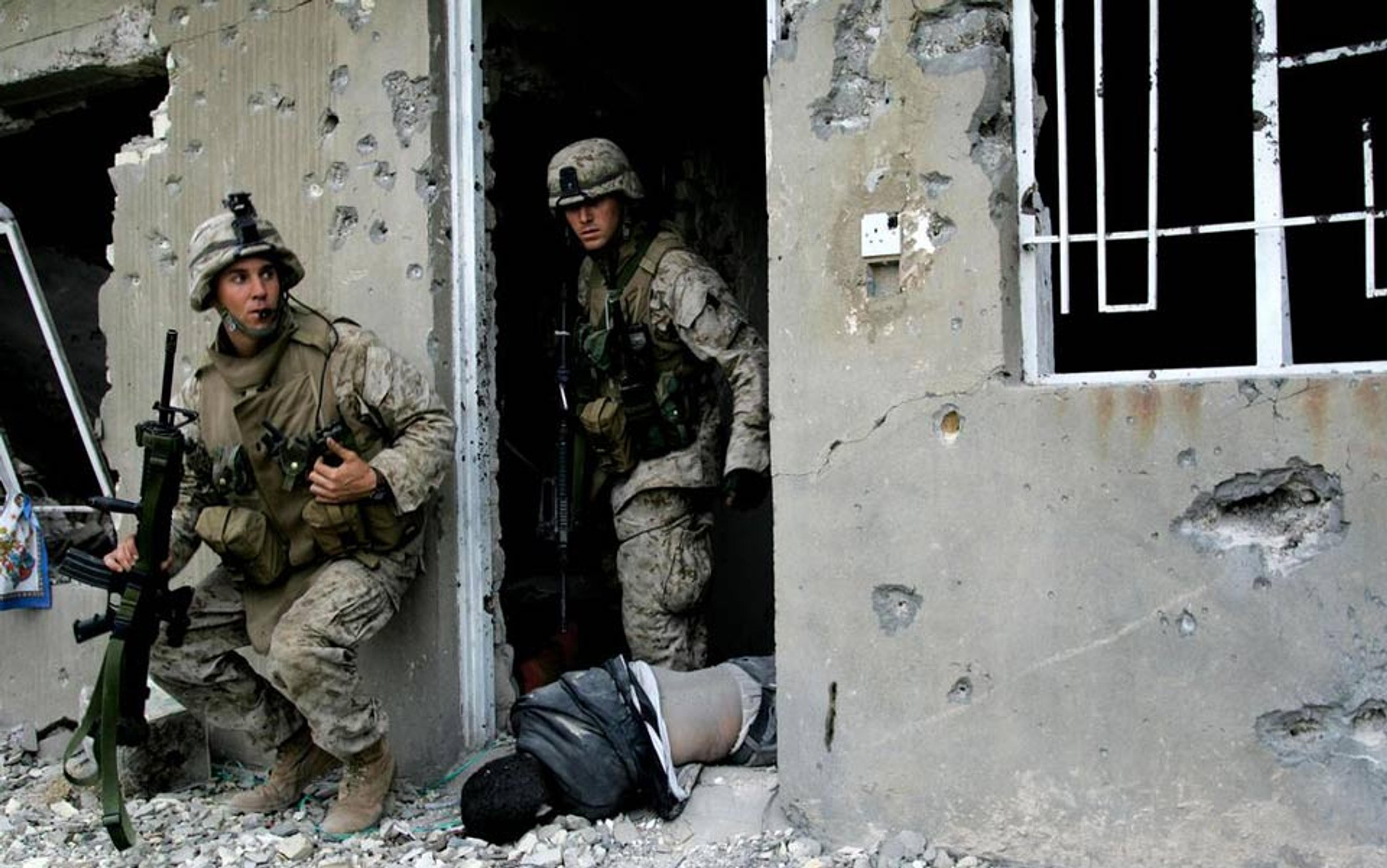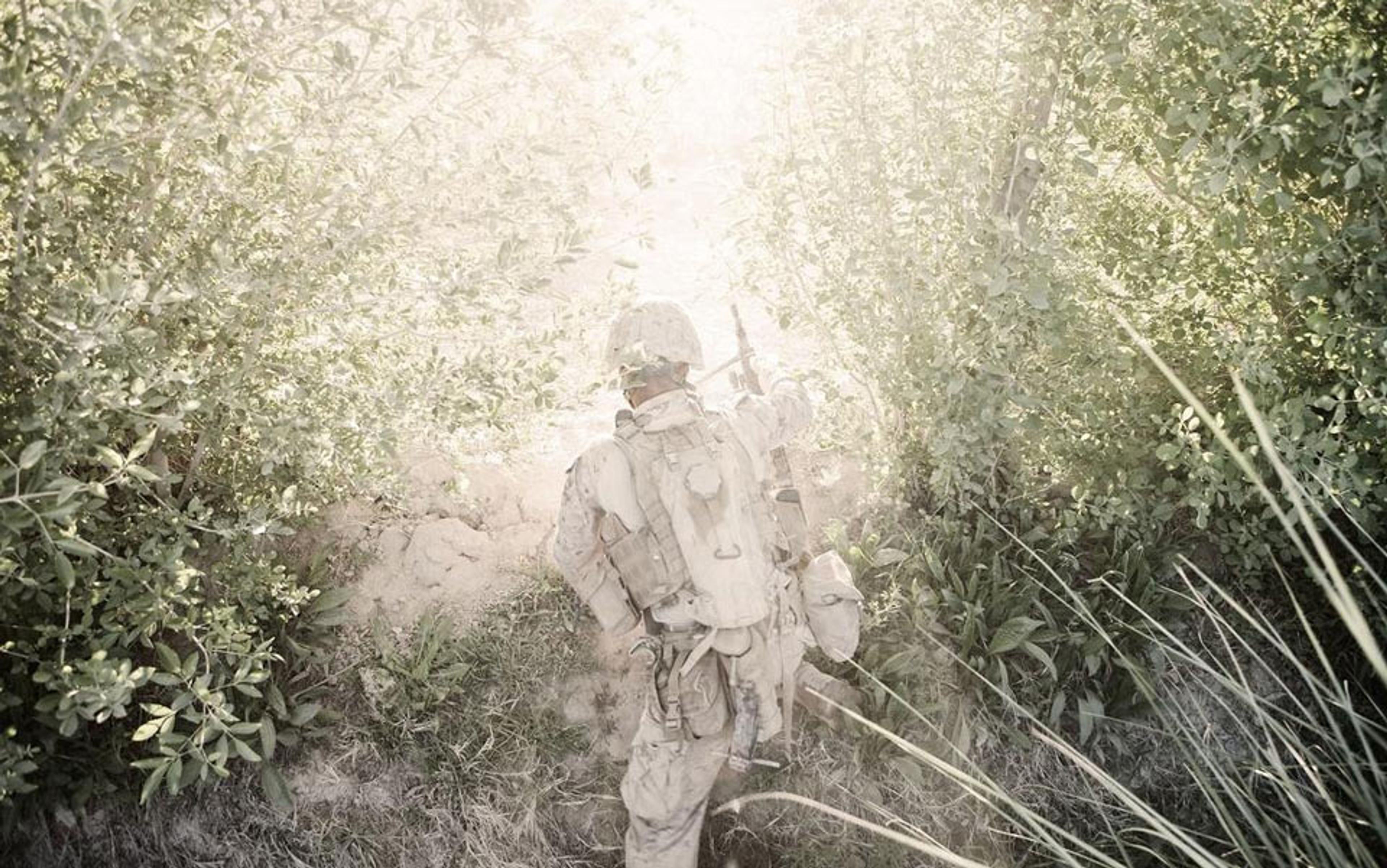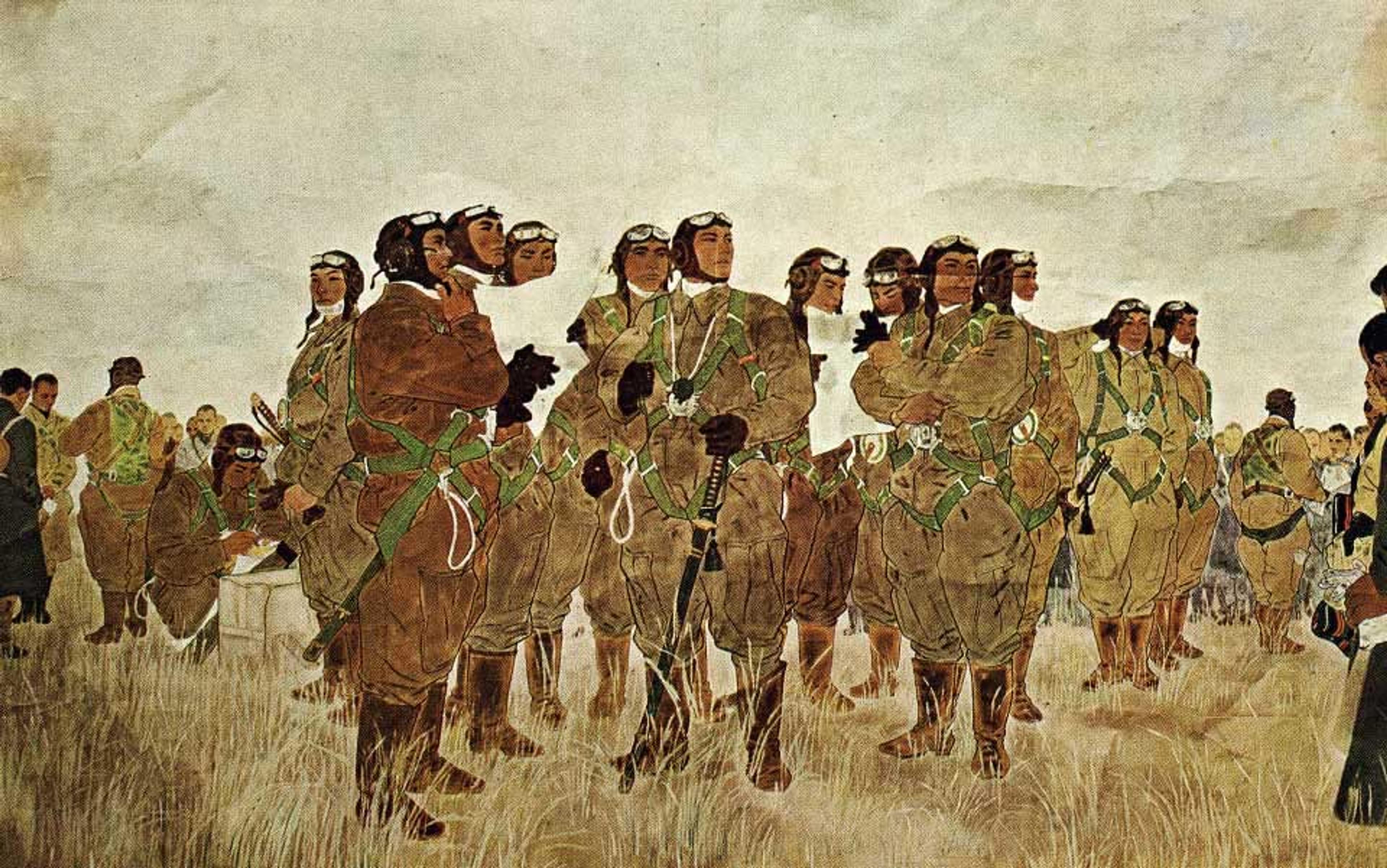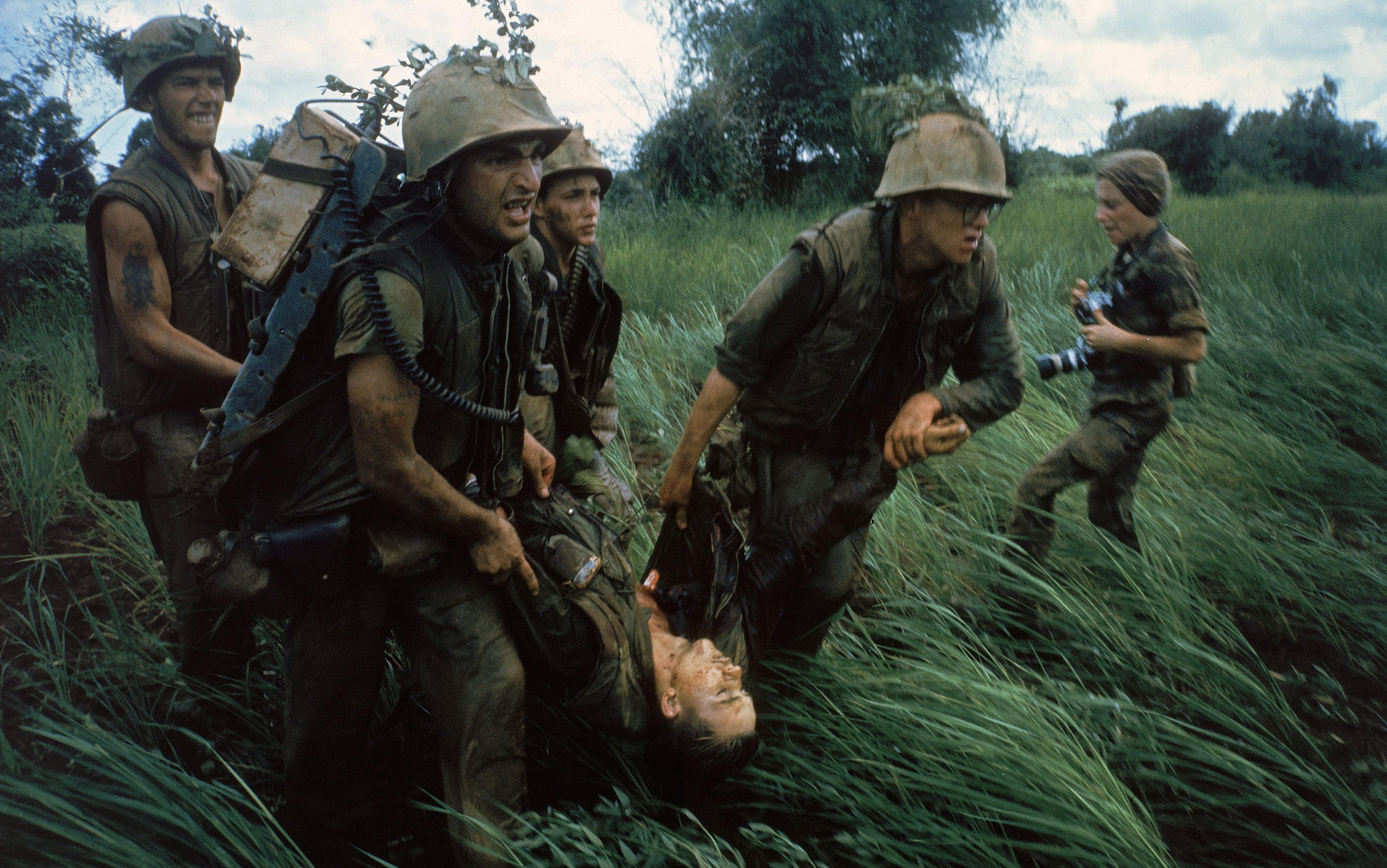When I attended the Royal Military Academy Sandhurst in 2002-3, the leadership training was excellent. It included discussion of the British Army’s values and the laws of armed conflict. However, I received no ethics training for the occasions when neither values nor laws would fully prepare me to make complex moral decisions in faraway fields populated by people with very different cultural norms.
The then prime minister Tony Blair spoke at our pass-out parade just weeks after the invasion of Iraq. Dignitaries usually stop at every third or fourth person on parade to have a few words. Blair stopped at what seemed like every single officer cadet to speak, no doubt driven by good motivation, but inadvertently causing great pain for all on parade who had to stand there much longer than normal. He asked me what I would be doing in the Army. I told him I would be in intelligence. He said: ‘You will be busy.’ And he was right.
My first operational tour was to Northern Ireland during a quiet period in the province. An early memory is of seeing the Israeli and Palestinian flags flying in Unionist and Republican villages, with the curbstones painted red, white and blue in the former, and green, white and orange in the latter. The importance of understanding local context became clear. It was the first time I had a tiny insight in to what it might feel like to be looked at with prejudice.
I would later read the Scottish philosopher Alasdair MacIntyre, who in After Virtue (1981) describes humans as narrative beings, who need to ask ourselves ‘of what stories do I find myself a part?’ For MacIntyre:
we all approach our circumstances as bearers of a particular social identity … I belong to this clan, that tribe, this nation … As such I inherit from the past of my family, my city, my tribe, my nation, a variety of debts … and obligations.
This was something that I began to grasp from the looks I received patrolling through the Saturday shoppers on what seemed superficially like the streets of any other town in the UK. I was a stranger in uniform who represented more than I understood. As this dawned on me, I might have taken heart from reading Kwame Anthony Appiah’s book Cosmopolitanism: Ethics in a World of Strangers (2006), where he writes: ‘the great lesson of anthropology is that when the stranger is no longer imaginary, but real and present, sharing a human social life, you may like or dislike him, you may agree or disagree; but if it is what you both want, you can make sense of each other in the end.’ Hopefully, Northern Ireland will continue to be held up as evidence that Appiah is right on this.
My second tour was to Iraq in 2004 as the Sunni insurgency was escalating. This included the rise of the forerunner of ISIS: Al-Qaeda in Iraq, which saw the targeting of Shia communities and the first uses of the orange boilersuits mimicking those worn by Guantánamo Bay detainees. During that tour, I would have benefited from reading the early Greek skeptics such as Pyrrho of Elis. Their approach of questioning everything, even the importance of the Western notion of ‘truth’, would have helped me to understand the situation better. We were operating in an oral culture where custom and manners mattered more than the ‘truth’ as I understood it. In rooms filled with cigarette smoke, I would be told whatever the local Iraqis thought I wanted to hear. This was often what they thought would achieve their goals in local political games I’d no idea I was playing. I heard the words and translated them into what I thought were corresponding ‘facts’. This meant that I often misunderstood the message, missed the meaning, and learnt no ‘facts’.
I would have also benefited from a philosophical perspective on another Western notion that was being shattered as bombs tore apart communities: the notion of human progress. The idea is that with the right governance, social institutions and economic opportunities you will end conflict and, correspondingly, that conflict is the result of bad governance, bad institutions and the lack of such opportunities. If I’d read thinkers from ancient Greece and the Far East, who appreciated the cycles that history follows, and recognised the flawed nature of our equally creative and destructive species, I would have been able to see that the Iraq project was what the philosopher John Gray in 2014 described as ‘the persisting folly of Western governments’ based on hubris and a lack of appreciation of our history.
I would slowly learn that, as Gray put it, ‘destructive human conflict is rooted in flaws within human beings themselves’ – flaws unveiled in Iraq by grievances on a historical timescale we in the West no longer understand. The international architects of the new Iraq, who were being helicoptered from one protected compound to another, moving blindly over the carnage of sectarian and tribal violence below, seemed not to acknowledge this in the PowerPoints on good governance that they showed each other.
Stoicism, in particular that of the Roman emperor and general Marcus Aurelius, has long been popular among military leaders. As well as Aurelius’ Meditations, I wish I’d read Seneca’s Letters from a Stoic. Since 2009, the US Military has taught Stoicism in their Comprehensive Soldier Fitness programme. They teach soldiers to focus on what they can control, and to become comfortable with what they cannot – the central message that the former slave and early Stoic Epictetus emphasised.
This would have been most useful in Basra in 2005, sitting in the back of poorly protected Land Rovers when the threat of improvised explosive devices (IEDs) was high. The team before us had been hit twice, resulting in fatalities. In the back of those hot, hard-edged, mobile coffins, you could see nothing of the outside, just hear chaotic sounds of Basra’s street life and feel the sudden jar of a pothole. Sometimes you’d hear nothing at all – which was more worrying still. Military training teaches you how to control yourself and the environment: follow what we say, and you can take control of your fate and survive. Then you find yourself blind to a multitude of threats, reliant on luck and equipment you don’t trust. A sense of Stoic humour is needed. This would also have helped when I handed two phone numbers to a coalition partner, one mine, one a target’s: both written on the same piece of paper. I was phoned later that night to be told the target might have been spooked as he’d phoned the wrong number to check in. A camera relaying a grainy black-and-white image of a quiet dusty street confirmed that he’d indeed been spooked. A man ran out of the house we were watching and raced down the street.
I worked on two kidnap cases in Iraq. The first victim was held there by Al-Qaeda, and they beheaded two boiler-suited US contractors with whom he’d been taken. Despite a temporary escape, he was killed. Watching the brutal videos of the decapitations, looking for clues to where the group might be, I noticed my hands weaken, my grip on the Coke can I was holding involuntarily loosen. I thought I was looking at genuine evil. Later, reading Gray, Sigmund Freud, Herman Melville and Friedrich Nietzsche helped me to understand how the kidnappers came to be like that, and how we all have the capacity for extreme cruelty. To stop such acts, you have to understand why they are happening, and that the people perpetrating them are not, for the most part, so different from you and me.
With the second hostage case, we had no leads and we never found out what happened. Not knowing seemed worse than the tragic outcome in the first case. Reading the American philosopher Samuel Scheffler’s Death and the Afterlife (2016) a few years later helped me to understand why. He examines how many in the West, despite not believing in life after death, care very much about the memory of our loved ones living on past their death. We are also narrative creatures, and we care deeply what the end of our story is, even if we are not going to be around to hear it. It is in part why groups use the threat of ‘disappearance’ in conflicts. The ‘disappeared’ have a degree of tragedy greater than those whose fates are known. The state of limbo this places loved ones into is somehow worse than the grief that follows news of a death. It explains why soldiers in many conflicts go to such lengths to provide identification in case of their own deaths, from American Civil War soldiers writing their names on the inside of their collars, to Argentinean conscripts scribbling their names on their arms in pen, to the development and importance placed on so-called soldiers’ ‘dog tags’.
By the time I went to Afghanistan in 2007, I’d started to read philosophy and took downloads of the Philosophy Bites podcast with me. There, the need to make sense of the local context was even greater, and we didn’t understand it anywhere near enough. As small units fought intense isolated local battles, Afghanistan also highlighted the need to have a framework in which to think about ethics. The law should do this, I thought, but, without the underlying explanations, laws get ignored. This is especially so when laws seem to be irrelevant to the specific local context or if the law becomes deprioritised, as when the value of the end goal – potentially saving your friends’ lives – seems higher than the punishment for breaking the law.
The case of ‘Marine A’, the British soldier convicted of murdering a mortally injured Taliban fighter in 2011, brought much of this into controversial focus (the conviction was later reduced to manslaughter on the grounds of diminished responsibility). Also, much of the modern urban interconnected battlefield is not fully covered by the laws of armed conflict, which struggle to keep up with technology and society. In such cases, philosophy provides arguments to support the law and navigate issues not covered by it. For example, I learnt about the ‘trolley problem’.
The military’s way of operating encourages an ‘end justifies the means’ approach
Imagine a runaway trolley (what Americans call a railway carriage) speeding down the tracks. Five people are tied to one track, and one person is tied to another track. You stand next to a lever: if you pull, it will switch the trolley to the track with one person tied to it. Do nothing, and the trolley kills five. The ‘trolley problem’ has evolved versions, such as a fat man who can be pushed from a bridge to stop the trolley, instead of the track-switching lever. Most are happy to pull the lever but not to push the fat man, even though the outcome is essentially the same: sacrificing one to save five. I was happy to push the fat man. So were most of my colleagues.
The trolley problem is criticised for lacking the elements faced by soldiers on the ground – personal biases, physical discomforts, psychological pressures – the sweaty, confused, dirty reality. But while understanding the local context was essential, including the context of my relationships and associated duties, I found it useful to take some dilemmas out of the context in which I was operating and look at them again through a different lens, focusing on the principles behind them. It helped me to understand that the military, with its focus on the mission (with the caveat of ‘within the law’), was essentially consequentialist. This means that the military’s way of operating encourages an ‘end justifies the means’ approach, as described by the 19th-century utilitarian philosopher Jeremy Bentham and more recently by the Australian philosopher Peter Singer. By understanding the criticisms of consequentialism, I could try to conduct myself as ethically as possible and to some extent step back from that utilitarian model of thinking.
I became aware that, the more extreme the situation, the more likely it is that people default to an increasingly consequentialist approach. The use of the H-bomb in the Second World War and the return of torture in the aftermath of the terrorist attacks of September 2001 are examples of this. It led me to think more about the ethics of the act itself rather than its consequences. In Afghanistan, for instance, if faced with a local contact who wouldn’t tell coalition forces where a certain bomb-maker was located, Bentham would have encouraged us to deal with the problem as the Pashtun tend to settle their scores: with blood-shedding. However, Bentham’s near-contemporary Immanuel Kant would have urged against killing the bomb-maker. Kant believed that every rational agent is an end in himself. You should never treat another person as a means to an end, and you cannot make exceptions for yourself, whatever the ends. Realising this helped me to re-enforce laws that could have been undermined by the understandable desire to stop the production of murderous IEDs at all costs.
As well as helping on the battlefield, I believe that philosophy can help in the aftermath of conflict. It can help to prepare soldiers for what they might encounter, and assist them in coming to terms with what they have done. Stoicism at the time can reduce the impact of events later on. Philosophy can help ex-soldiers understand what they are missing. In Straw Dogs (2002), Gray writes of the freedom that war provides, claiming that war cuts ‘the cord of circumstance that tethers average humanity to its chores’.
Paradoxically, the proximity of death on the battlefield can make some feel more alive. This intoxicating mix, and the sense of purpose and belonging that the army gives, inspires young men to fight, then leaves them lost when they leave. Aristotle’s writings on virtue and the ethical life can help with purpose. The Path (2016) by the American philosopher Michael Puett and the journalist Christine Gross-Loh introduces a number of Eastern philosophers whose work might have been helpful in battle situations. Their work on belonging and focusing on the present – including Confucius on the importance of social ritual and Zhuangzi on trained spontaneity – seem highly relevant to the issues facing soldiers in action.
But philosophy is not for every soldier. Some just wouldn’t take to it, and work better with apparent certainties than with an approach that’s questioning and skeptical. And not all philosophy is of much use to a soldier in action. Clearly, knowledge of G W F Hegel’s dialectics wouldn’t help much when receiving incoming fire in a platoon house in Sangin in Afghanistan. Yet, for me, facing morally difficult decisions in a warzone made me realise the subjective values that had influenced my thinking. Acts that I saw as inherently right or wrong in the comfort of everyday life didn’t seem so black and white in this new context.
A deeper knowledge of philosophy would have made me better at my job
This is part of the reason that, years after leaving the Army, I was attracted to the idea of writing the biography of Alan Juniper, a Second World War deserter. As well as understanding the tremendous strains that Juniper was put through, which almost certainly resulted in undiagnosed psychological injury, I was interested in exploring the wider morality of the act of desertion. I wanted to examine my emotional reaction to a British deserter, and reflect on how much of this was the result of national myths and deliberate conditioning in the military, as well as what this meant for how a society values individual rights against the duties it expects from those same individuals.
A deeper knowledge of philosophy would have lessened the need to go through some of the experiences I did to learn what I learnt. It would have made me better at my job. The 19th-century German writer J W Goethe said: ‘A person who does not know the history of the last 3,000 years wanders in the darkness of ignorance, unable to make sense of the reality around him’. We should remind ourselves, in these increasingly binary times, of the 3,000 years’ worth of thought that can help us to understand that we aren’t operating from an unbiased neutral standpoint outside of the lived world. We should be reminded of the need to think critically and question why we hold the views we do. Philosophy can help us with this, though it is not a panacea. And, perhaps the most important lesson it has for us, one that is particularly relevant when the world feels increasingly volatile and unstable, is that other people are ends in themselves, and not just means.
This Kantian lesson was brought home to me again while writing Juniper’s biography. As I followed him in my book through the chaos of skirmishes in the desert of North Africa and over the hills of southern and central Italy, I came across two sorts of hero. One group was more obvious and more widely regaled than the other. These were the people who received Victoria Crosses and other awards of bravery for fearlessness, self-sacrifice and daring. And then there were those who were never honoured for their actions, like the residents of the small Italian village of Lacugnano who, despite the context of the time, saw another human being as just that, and took a broken man who only months before had been their enemy into the community. In among the failure of humanity that is war, they still saw humanity, and treated another as an end in himself.
